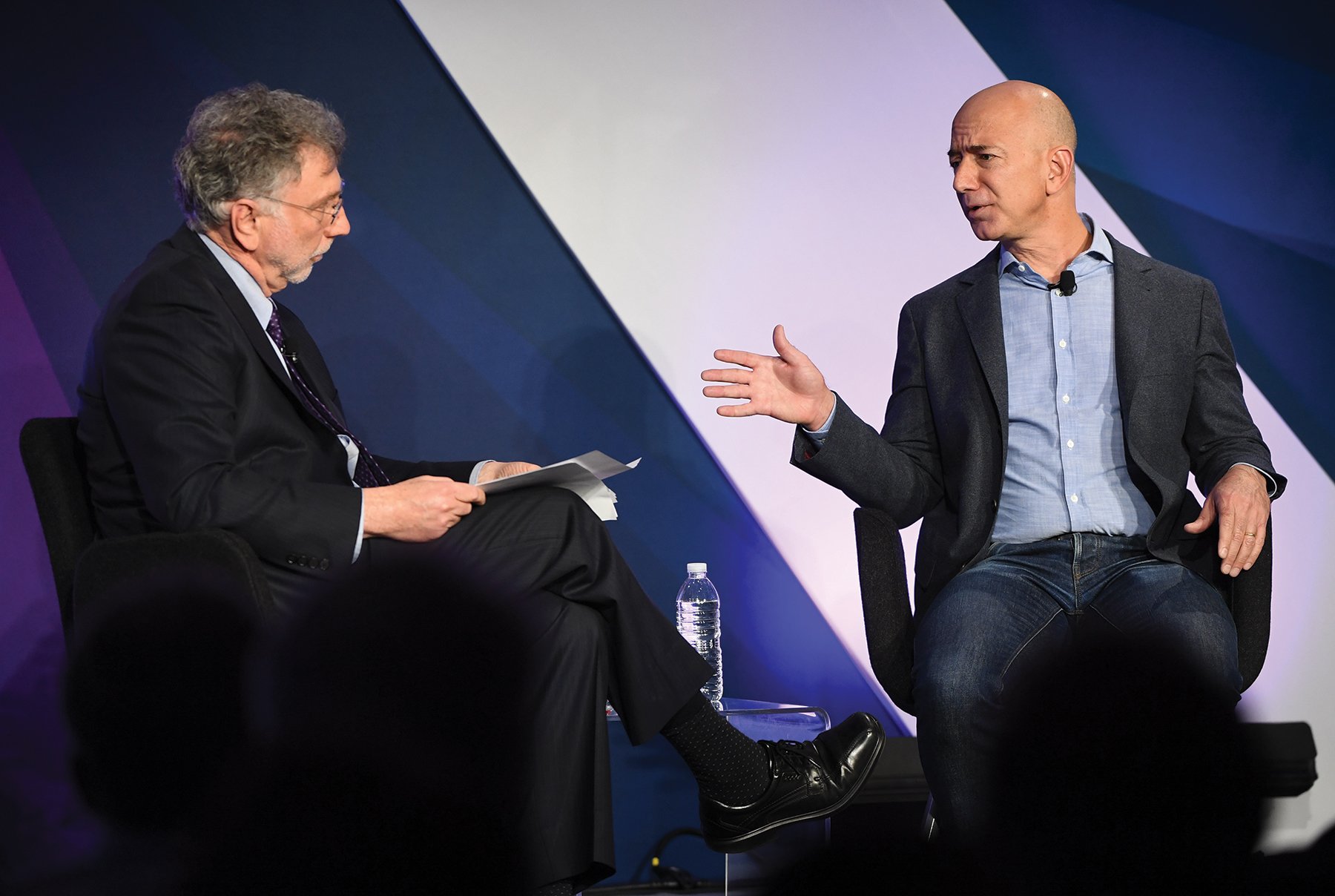On August 5, 2013, Washington Post employees gathered in their auditorium to hear owner Donald Graham announce that he’d sold the newspaper to Jeff Bezos. In the five years since, Bezos’s investments in journalism and technology have made the paper better—and more nationally important—than it had been in years. But talk to employees and you’ll hear there are still things they’d like Bezos to address. Herewith, a punch list for the next half decade.
Fix the 401(k) Situation
The Post offers a measly 1 percent match on retirement accounts, and management won’t budge. Under Bezos, the Post has cut retirement benefits and forced terminated workers to forgo any legal claims against the company in exchange for severance pay. Many people I spoke with say the world’s richest man’s recalcitrance on these issues baffles them.
Reopen Some U.S. Bureaus
The paper closed its last traditional domestic bureaus in 2009. The Talent Network, a Bezos-supported replacement plan, signs up freelancers to report from outside the region, and there’s little problem getting airfare approved when Post journalists want to parachute in on a story. In many cases this has led to excellent work, but that’s just not the same as having your people live in the areas they report on so they can get in on stories before everyone else arrives. Imagine, for instance, the wrecking crews the Post could assemble in Los Angeles or Chicago. It would also emphasize that the Post is a national newspaper at a time when many cities’ dailies are reeling.
Sort Out the Sports Desk
In the pre-Jeff days, a lot of the paper struggled with former publisher Katharine Weymouth‘s imperative to make a Post “for and about Washington.” But now that much of the Post‘s daily reporting has a national, digital focus, sports can sometimes feel like it’s puzzling out who it’s for. The local fans? The much bigger national audience? One very positive (if bittersweet) sign: Dan Steinberg‘s move from writer to editor on the desk.
Bring Back the Ombudsman
A paper that has earned such a big role in national politics should be accountable to more than social-media criticism. An ombudsman can produce the kind of institutional clarity that mobs are pretty bad at eliciting—we all know when, say, a Richard Cohen column is bad, for instance, but an ombudsman could get answers on why the opinion section runs him anyway. The Post doinked its ombo position in 2013, and executive editor Martin Baron isn’t likely to fight for restoring this particular budget line. Do it anyway. An ombudsman could make it clear that the Post is editorially independent from its owner and root around in thorny issues that busy institutions can be slow to address, like big-picture questions about coverage and diversity in management.
What’s the Plan for the Post-Trump Era?
Some day, the White House is going to cease being so interesting. During the insane run-up to the 2016 election, some in the newsroom say, ad-hoc groups at the paper discussed preserving traffic during a presumably boring Hillary Clinton administration. It may be difficult to prioritize now, but employees would probably appreciate hearing there’s a plan for when the fire hose goes dry.
This article appears in the August 2018 issue of Washingtonian.





















